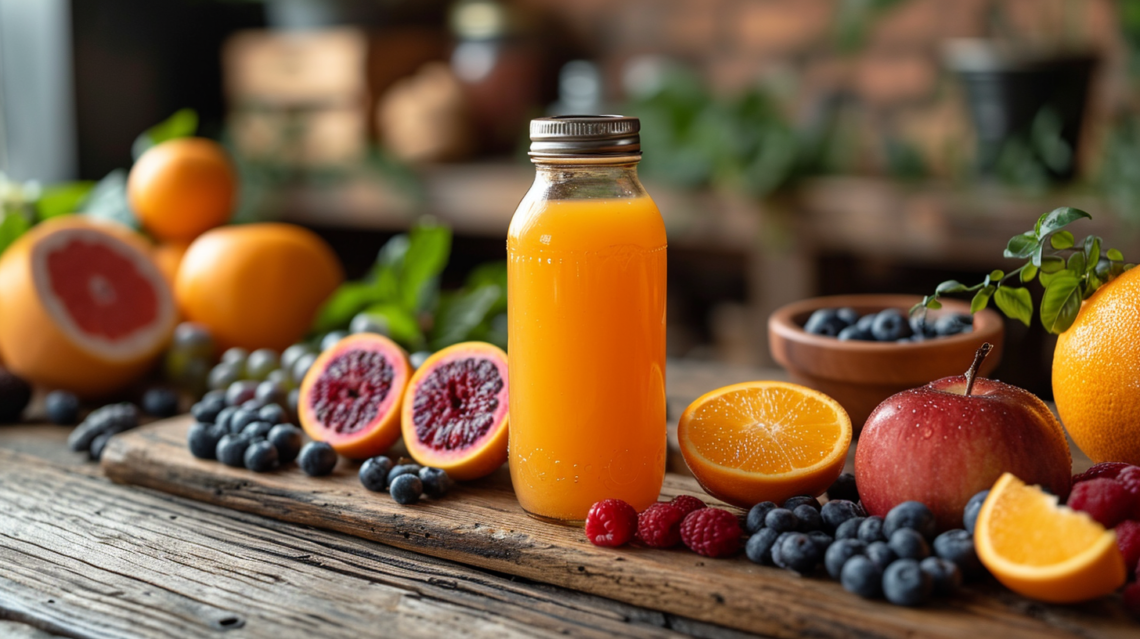
Fruit Juice and Sugar: Healthier Alternatives
Fruit juice, derived from the squeezing or pressing of fresh fruits, is often perceived as a natural and wholesome beverage. However, this seemingly healthy drink can also contain astonishingly high levels of sugar. For instance, a typical glass of orange juice can contain as much sugar as several whole oranges. The main issue here lies in the concentration of sugar. While whole fruits contain fiber, which slows down the absorption of sugar into the bloodstream, fruit juice will sometimes lack this important dietary fibre. As a result, the sugar in juice is absorbed much more quickly, leading to rapid spikes in blood sugar levels. Moreover, the juicing process densifies the sugars in the fruit and eliminates most of the other nutrients. The sugar increase makes up for the elevated calorie density while the reduction of most of the other nutrients lowers the nutritional biovalues. Even 100% fruit juice may still contain high amounts of sugar.
Consequences for Health due to Sugar Overload
Many diseases have been shown to be related to the intake of sugar. The most immediate effects of high-level intake of sugary foods and beverages are extremely active increases in the blood levels of glucose, which might be problematic especially in diabetics or other patients suffering from glucose tolerance as a result of insulin resistance. Long-term high sugar intake leads to an increase in type 2 diabetes. Similarly, the consumption of high levels of sugar is related to weight gain and obesity. In turn, obesity is a risk factor of a host of other health conditions including heart disease, stroke and certain types of cancers.
Then, there is oral health to be considered. Sugary drinks, fruit juice included, cause tooth decay. This becomes very risky for children who are the most populous consumers of fruit juices.
Healthier Alternatives to Fruit Juice
Factoring the above concerns, it is therefore prudent to look into less harmful alternatives. First and most obvious is water. It is a hydrating substance devoid of any calorie content, yet indispensable to most physiologic functions. For this reason, some people regard water as too plain and thus they might throw a few slices of lemon, lime, cucumber or even some berries to make it taste more refreshing.
Herbal tea and infusions are yet another healthy option. They come in countless of different flavours, are naturally low in calories, and can be consumed hot or cold depending on personal preference. For those who miss the flavourful taste of a sweet juice, adding a natural sweetener such as a little honey or stevia will do the trick.
Another option is vegetable juice. Spinach, kale, or cucumber juices may contain lower amounts of sugar, but others may be high in natural sugars like those made from beets or carrots. These may be a great way to supplement the intake of your veggies and more especially for those who aren’t getting enough vegetables in their diet.
Smoothies made from whole fruits and vegetables can also be a good option since they retain the fibre that is lost in juicing. However, care should be taken with the ingredient; addition of high sugar fruits might quickly raise the sugar level. Including some type of protein and healthy fats such as Greek yogurt, nuts, seeds or protein powder can help balance out natural sugars, making a more nutritious beverage.
It is important to keep in mind the health issues associated with the consumption of excessive sugar and by looking at healthier alternatives be able to derive the benefits of hydration as well as nutrition without taking in the disadvantages of sugars. Of course, moderation and a proper diet regime go a long way in ensuring good health.

